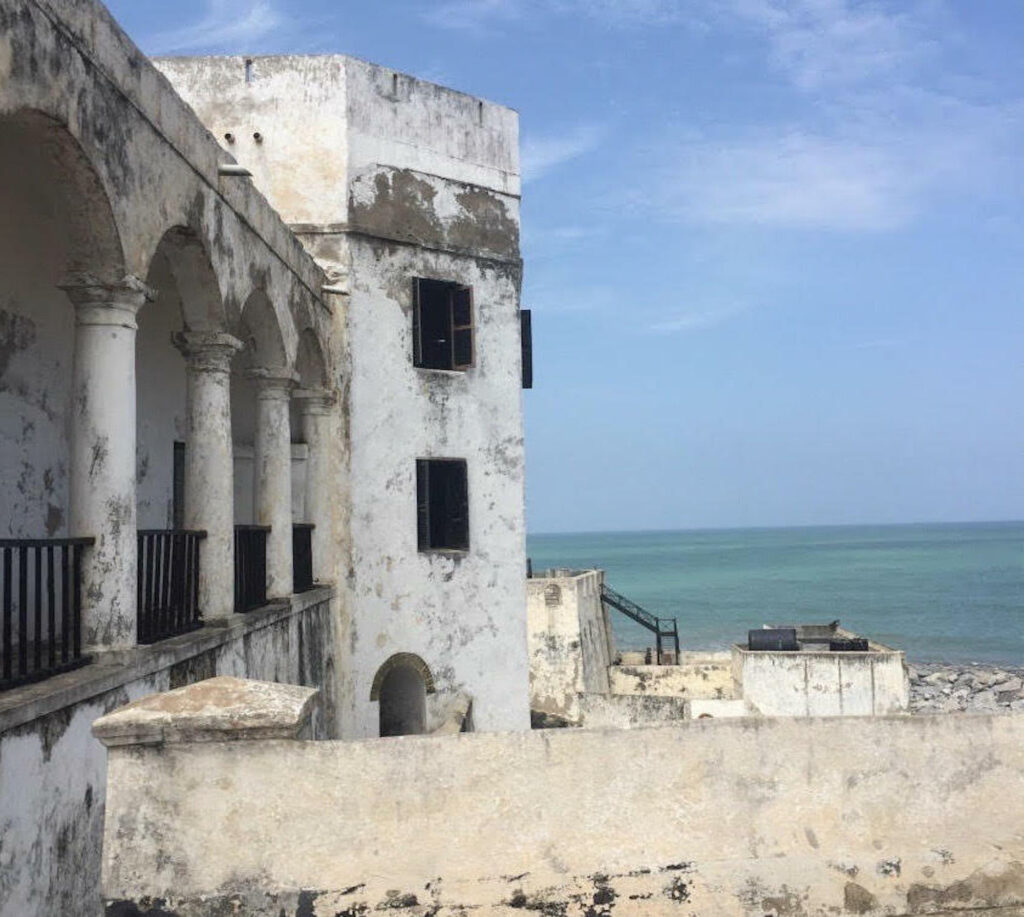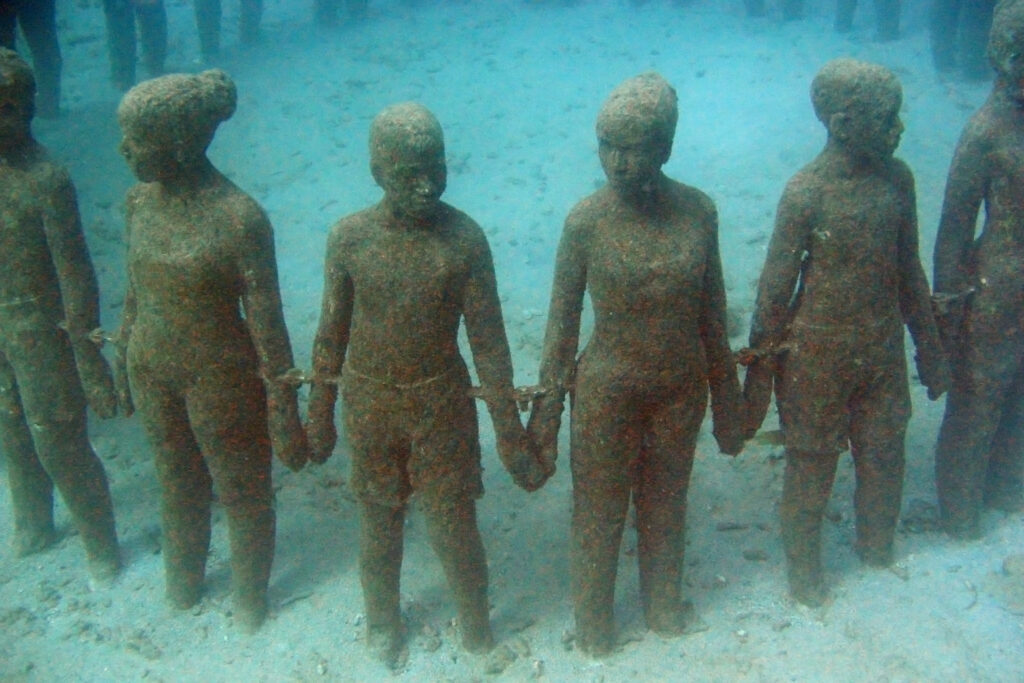A Birth and a Death—a Haunting of Igbo Landing

“A Birth and a Death—a Haunting of Igbo Landing” is part of the collection Indigenizing What It Means to Be Human. Read the introduction to the collection here.
I am of crashing waves
battering thrusts against wooden unholy vessel, docking on all that is new, all desired, all ravaged and stolen, sandy and unforgiving
That toils and folds in the center to reveal hearts, open hands, that begat mothers and daughters, tore sons from their stride with the quickness of a pant and fearful breath
Of that center under the fold, under turmoil that made way for me, and 500 years that prayed for me to be in this place, this space as I am.
From fearful excited tears, heaves, and sighs on sweaty back—she wails and thrusts 60 days before anticipated in chaotic love I arrive …
Such arrival a renewal and cycle of an old tale told before our time, listen children listen—a lesson of how we thrive and how we die only to survive
The legend of Igbo landing, as historians tell it—resolves with a death and rebirth.
And again and again choosing death wading water high decisions to drown—visions of home in sight.
Long awaited and anticipated in chaotic love; a rebirth.
They say, “The water spirit brought us, the water spirit will take us home” and on sweet blue wave, newborn, I ride, surfing suffering tones that hold ancestors, caressed in dark blue hope—
they said when you choose death mother water, great provider will channel you home.
They say in May, the year of our lord 1803 (one thousand eight hundred and three) ancestors landed on unholy space—all new, never desired, yes ravaged and stolen—sandy and unforgiving.
And with the little leverage left, power bestowed by holiest Chukwu, ancestors took one step then the next choosing death, choosing death again and again and again.
Water spirit brought me, water spirit took me—home …
They say flying Africans took up wings like Eagle, like Crow, like Vulture
black and brooding deep bird like majesty and wonder—
flapped high into the night—
away back home.
Have you heard of them?
Like you, like me, let us feel the prickle upon our flesh, embrace the emergence, as feather pokes brownest of skin, reveal red, swollen, and sore to make room for more—
grow wings on whipped back—
where wounds abound wings are greater—wider, faster.
Haven’t you heard?
The legend of the flying Africans. Come gather, come listen I will tell, I will tell.
































